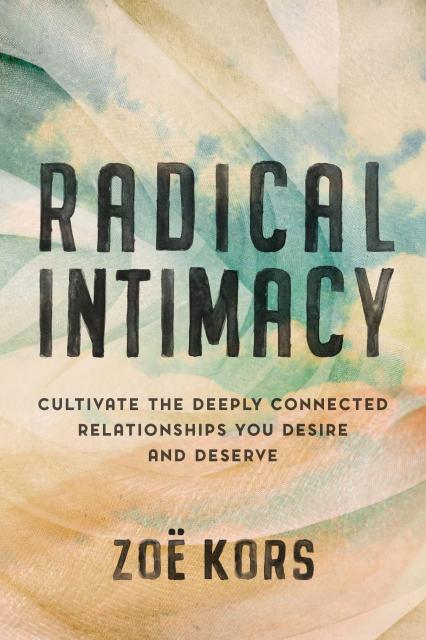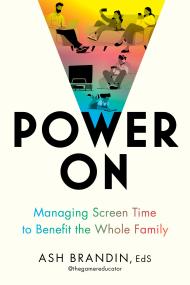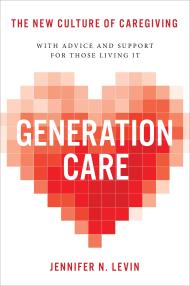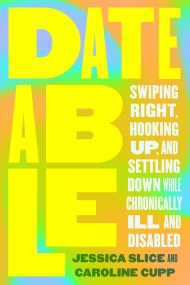By clicking “Accept,” you agree to the use of cookies and similar technologies on your device as set forth in our Cookie Policy and our Privacy Policy. Please note that certain cookies are essential for this website to function properly and do not require user consent to be deployed.
Radical Intimacy
Cultivate the Deeply Connected Relationships You Desire and Deserve
Contributors
By Zoë Kors
Formats and Prices
- On Sale
- Apr 12, 2022
- Page Count
- 256 pages
- Publisher
- Balance
- ISBN-13
- 9780306826603
Price
$29.00Price
$37.00 CADFormat
Format:
- Hardcover $29.00 $37.00 CAD
- ebook $14.99 $19.99 CAD
- Audiobook Download (Unabridged) $24.99
This item is a preorder. Your payment method will be charged immediately, and the product is expected to ship on or around April 12, 2022. This date is subject to change due to shipping delays beyond our control.
Buy from Other Retailers:
A narrative guide and practical methodology for nurturing and sustaining our relationships with ourselves, others, and the world.
“With intimacy as the foundational principle of our existence, we can build a life based on what we truly need, not what we think we need or have been told we need. By embracing the practice of radical intimacy, I can confidently promise my readers a personal revolution of self-acceptance, appreciation, vitality, and confidence. And without fail, mind-blowing, soul-stirring, earth-shattering sex follows.”—Zoë KorsPart practical guide, part client stories, part personal narrative, Zoë Kors draws on her experience as a sex and intimacy coach, thought leader, and relationship writer in sharing her powerful and practical methodology for nurturing and sustaining our intimate relationships over time. She addresses the essential truth that is almost universally missed in discussions of sex and intimacy: We can meet each other only to the extent that we can meet ourselves. Kors guides the reader on a five‑part journey through nine areas of opportunity for deepening intimacy with themselves, their partner, and their world, inviting them to embrace emotional, physical, and energetic self‑mastery, which is required to skillfully relate with others. At the conclusion of each part, there are a collection of experiential exercises which support the reader in embodying the concepts they’ve just read. Voice-driven, accessible, and with the right amount of tough love, Radical Intimacy takes the mystery out of human connection. From academia and science to mysticism and self-development, Kors delivers a rich and varied understanding of human sexuality and intimacy through the lens of the body, brain, heart, spirit, and culture.
-
“Philosophical and practical, part manifesto and part guide to sexual manifestation, Radical Intimacy is an accessible and unique perspective on the work of relationship. Delivered with exuberance and compassion, Zoë gives us all the tools we need to feel deeply connected, to ourselves, and each other.”Ian Kerner, sex therapist and NY Times best-selling author of She Comes First
-
“If Esther Perel and Glennon Doyle had a love child who was raised by Pema Chödrön, you would end up with Zoë Kors.”Katie Brauer, former pro snowboarder, Forbes Rising Leader
-
"We live in an always-on, hyper-connected age that disconnects us from ourselves, distracts us from what matters in life, and erodes our capacity for intimacy. But as Zoe Kors argues, all is not lost. Drawing on her experience as a coach and educator, she makes the case for the importance of strengthening our capacity for intimacy, and shows how it can helps us deepen our relationships, connect with those we love, and better understand ourselves. In today’s world, nothing could be more radical."Alex Soojung-Kim Pang, author of Shorter, Rest, and The Distraction Addiction
-
"This is the book we’ve been waiting for—a discerning guide for conversations about true, deep, wholehearted intimacy that so many of us have been craving. In Radical Intimacy, Zoe Kors offers an insightful, innovative lens on the complex landscape of connection, sex, love and erotism. Brava!”Holly Richardson, PhD, author of Reclaiming Pleasure
-
"Never has the work of relationship, connection and vulnerability been more important. Radical Intimacy is a guidepost on how to take wise action in these uncertain times with skill, compassion, playful curiosity and sass."Reginald Hubbard, progressive political activist/organizer, strategist and founder of Active Peace Yoga.
-
"I come across so many people through my work who are utterly confused by intimacy. Zoe’s thought-provoking read book shines a new light on intimacy, especially for those generations of us that grew up afraid and ashamed of our bodies and emotions. Radical Intimacy is a powerful toolkit to help solve these issues this issue."Natalie Lue, author of The Joy of Saying No
-
"Radical Intimacy is the conversation and guidance that not only helps you, it can heal you. Zoe Kors continues to leave me awe struck, with her innate and delicate ability to navigate the complexity and necessity of sexual intimacy. I am elated, to know and to call this brilliant mind a friend, and a living oracle."Azure Antionette, critically acclaimed poet, Founder of Tell(h)er
-
“As we move through the precedents and paradigms of the modern world, Radical Intimacy is the book we’ve all been waiting for to serve as a guide for our most important relationships—the raw and real relationship we have with ourselves as well as with those we love most.”Felicia Tomasko, Editor in Chief, LA YOGA Magazine
-
"There’s only one path and we are all on it. We are always in ‘intimate relationship’ with everything in the universe, because everything in the universe is in us. This book is a roadmap through the jungle of our fear and longing for love… into the warm heart of our true being."Krishna Das, Grammy nominated recording artist and kirtan wallah
-
“Zoë Kors is a profound listener… and what is intimacy other than the ability to truly listen without bias and without judgement? This listening comes through in her writing and in her work. I am grateful to have encountered, grown, and learned from both.”Christopher Rivas, actor and storyteller
Newsletter Signup
By clicking ‘Sign Up,’ I acknowledge that I have read and agree to Hachette Book Group’s Privacy Policy and Terms of Use






